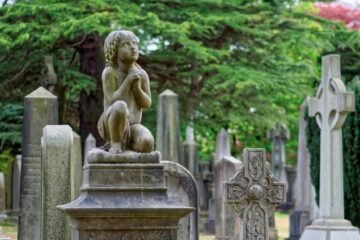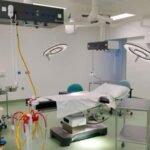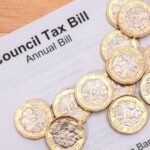Inquiry probes former first minister’s pandemic leadership
Nicola Sturgeon, the former Scottish first minister, will face a grilling from the UK Covid-19 Inquiry today over her handling of the pandemic and the deletion of her WhatsApp messages. The inquiry, chaired by Baroness Heather Hallett, aims to learn lessons from the decisions and actions taken by the UK and Scottish governments during the crisis.
Ms Sturgeon resigned from her post in May 2023, after a series of scandals and controversies, including a police investigation into the SNP’s finances, a row over gender reform, and criticism of her record on education and drug deaths. She was also accused of misleading parliament over the Alex Salmond affair, which saw her former mentor cleared of sexual assault charges.
Ms Sturgeon’s popularity soared during the pandemic, as she gave regular news conferences and appeared to take a more cautious and transparent approach than the UK government led by Boris Johnson, whom she privately called a “clown”. She also championed the cause of Scottish independence, which saw a surge in support in the polls.
However, her pandemic leadership is now under scrutiny, as the inquiry has revealed that she deleted her WhatsApp messages, despite promising to hand over all relevant communications to the hearings. The inquiry has also heard that she had a tendency to hoard power and exclude some of her cabinet colleagues and advisers from key decisions.
WhatsApp messages reveal ‘tighter cast list’ and ‘rammy’ with UK government
The inquiry has obtained some of the WhatsApp messages that Ms Sturgeon exchanged with her former chief of staff Liz Lloyd, who described herself as a “thought partner” to the ex-first minister. The messages show that Ms Sturgeon often relied on a “tighter cast list” of trusted allies, and sometimes ignored or overruled the advice of experts and officials.

For example, on Humza Yousaf’s first day as health secretary in May 2021, National Clinical Director Jason Leitch sent him a message that read: “She actually wants none of us.” Mr Yousaf defended Ms Sturgeon, saying that she needed a smaller group of people to make decisions on specific issues.
The messages also reveal that Ms Sturgeon was keen to have a “good old fashioned rammy” with the UK government over the extension of the furlough scheme, which she said would help her “think about something other than sick people”. She also discussed tweaking the numbers of people allowed to attend funerals, and joked about having a “wee dram” with Ms Lloyd.
Ms Sturgeon deleted her messages after they were recorded officially, according to the Scottish government’s security policy, which she said she followed “religiously”. However, some of her former colleagues, including Ms Lloyd, said they were not aware of such a policy, and the inquiry chairwoman suggested that there was a “rather enthusiastic adoption” of the practice of deleting messages.
Covid bereaved accuse Sturgeon of ‘destruction of evidence’
The deletion of Ms Sturgeon’s WhatsApp messages has sparked outrage among some of the families who lost loved ones to Covid-19, and who have been campaigning for justice and accountability. They have accused Ms Sturgeon of “destruction of evidence” and “protection of personal reputation over transparency”.
They have also criticised her for failing to apologise or show empathy for their suffering, and for not taking responsibility for the mistakes and failures that occurred under her watch. They have pointed to the high death toll in care homes, the lack of personal protective equipment (PPE) for frontline workers, and the delayed lockdowns and testing as examples of poor decision-making and management.
The Covid bereaved have said they will wait until the conclusion of today’s evidence session before considering a criminal complaint to Police Scotland. They have also called for a public inquiry in Scotland, which has not yet been announced, unlike in England and Wales.
Today’s hearing is expected to last for several hours, and will cover a range of topics, including the preparedness for the pandemic, the coordination with the UK government and the devolved administrations, the communication and transparency of the measures, and the impact and outcomes of the policies.
Ms Sturgeon has said she will cooperate fully with the inquiry, and that she is proud of her record and achievements as first minister. She has also said she hopes to return to politics in the future, and that she remains committed to the cause of Scottish independence.

















